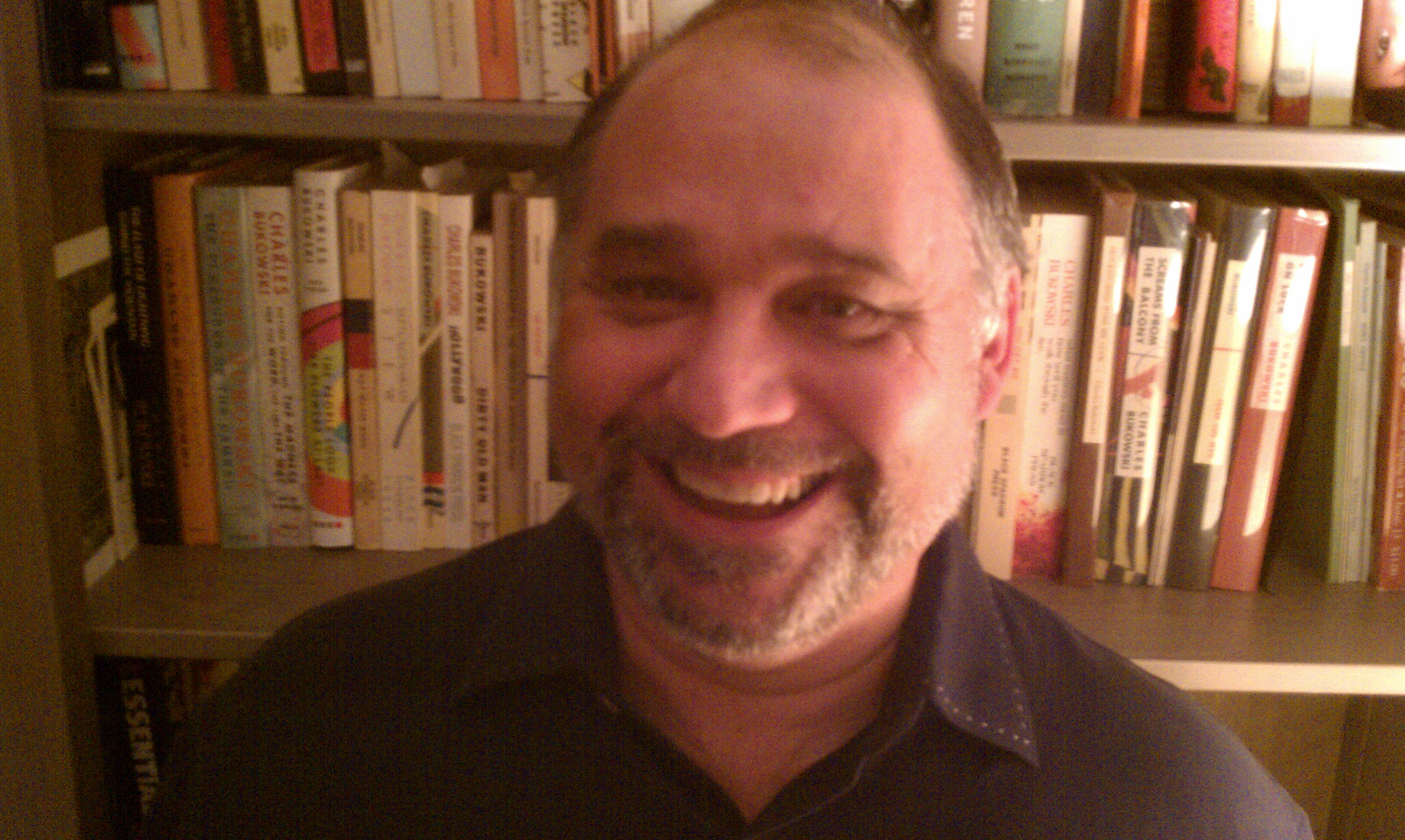Q&A with Linn-Benton Professor Chris Riseley
When I started interviewing Chris Riseley, I knew that he was a writing professor and led a few clubs at LBCC. What I did not know was the impact he has had on this community. When a student interrupted our outdoor interview to thank Chris for inspiring him to complete his education when he thought he could not, I began to realize how appreciated Professor Risely really is.
In his 13 years of teaching at Linn-Benton Community College, Riseley has not just been a college professor, but a part of the fabric of both Albany and the state of Oregon. Known by students all across the campus, he has taught multitudes of pupils over his career.
Quirky enough to own lizards, cats and goldfish, he brings his big personality and enthusiasm to educate not just to the classroom, but life itself. In my interview with Chris I got a glimpse of the infectious energy that he brings into his classrooms and optimism that students leave his classrooms with about their writing, their careers, and their lives.
And writing is what this interview is about. To improve my own fiction writing, approaches to reading, and future in the publishing industry, I tried to both paint a portrait of the professor-author, and offer readers insights into what makes fiction work.
What is the best way you’ve seen a character be introduced in literature?
Characters waking up from sleep or reflecting in a reverie. The opening of Ulysses is a good example as he prepares for his day. The Graveyard Book by Neil Gaiman introduces a character who is an infant who has to escape the murder of his family.
What is the optimal balance between character development or plot?
Writing fiction is not math, and what I mean by that is that every character has an inner life and an outer life. I suppose that we can look at that outer life as plot and the inner life as character. We can see that character life influences plot and that plot influences character. When you talk about perfect balance I think that that is dependent on what message the author hopes to pursue as they craft a particular piece of fiction.
What is the most common type of character development in fiction, specifically fantasy or science fiction? Is it some kind of independence or romance arc?
I want to talk about the development of a particular character. The book is The Fifth Season. I think about what is interesting rather than what is common in fiction. The book has what is uncommon in fiction. In this book we have a single character who needs to be introduced three different ways because the nature of her existence is so fragmented and that fragmentation is echoed in the setting because the place she lives is also fragmented. The main character is introduced three times as three different characters throughout the story and I think this is more remarkable than fiction that follows genre tropes.
What is your favorite short story?
The Rocking Horse Winner by D.H. Lawrence. It functions on multiple levels about intensely important facets of our lives. It’s visceral psychology as a story and will stay with you for decades. It’s about a family struggling to maintain cohesion in the face of adversity and a young child who takes on responsibility.
Have you ever published fiction?
I have been published. In 1994 I got published in this fantastic Hollywood industry magazine called Buzz Magazine and Antonio Banderas is on the cover of that edition. My short story My Sister’s Tail is in that magazine. Another short story was published in a San Francisco magazine called Oyster Boy Review and the story was titled Mind Your Own Business, Fatboy. My novel, Dog’s Days was published in 2004 and coming up I have some fiction being published in August called This Planet Is Not Safe, in Alternate Root. I’ve published poetry and essays as well, but that’s my fiction.
What is the most common story arc or plot arc that is written?
The hero’s journey is the most common plot arc. Pretty much every piece of action and adventure or romance is the hero’s journey. You’ll find it in most movies as well.
How should or can a subplot contribute to the main character’s development?
A short story has pretty much a single through line, so it's not a place for subplots. Subplots are for longer pieces. I'm not saying that there's no such thing as a short story with a subplot, but generally speaking and to answer the question we just need to be clear about genre. A great example of subplots include Shakespeare's Henry IV Parts 1 and 2; the works use subplots with players that lead up to Henry V, which is basically Shakespeare's idea of what the greatest kind of king would be. To me, to be able to make that impactful we have Henry IV Parts 1 and 2 that show Henry V when he's not the king yet; he's just prince at that point and the subplots involve the sort of people who hang out in bars and taverns. They hang out with prostitutes and they're doing very little besides getting drunk; they commit crimes but Henry doesn't necessarily participate in the crimes. He's there and he's having fun; he doesn't want to break the law and his times at the bar enhance the reader’s understanding of the inner life of Prince Henry. In Henry V that liveliness is what makes us care about them so much; the subplots essentially make us care about that protagonist in deeper richer ways based on our previous understandings of them in previous readings.
If you were a character in a story, what would be your journey?
(Riseley laughs) It would be as long as an epic and filled with twists and turns and touching on, you know, having happy moments and tragic moments. It would hopefully continue on an upward trajectory to my own sort of heroic journey or accomplishment. I think that's what most people want their lives to be. Epic in length if not in scope.
How do you feel about plot wheels?
I don’t use plot wheels. My stories come from my life and experiences. I think that we are at our best when we are writing about what we know most, and I think we write better about the people who have been in our life and who have left our life. I think that I want to write things that are related to my own life and are healing to my experiences. Engaging in what seems like a gimmick or a tool doesn't seem like it would help me as much.
At a Glance:
Chris Riseley
Occupation: Instructor at LBCC
Age: 57
Hometown: Corvallis, Oregon
Family: My wife and I have been together since the Reagan administration, and we have two kids. And two cats, a lizard, and a goldfish.
Education: I have a master’s in English literature with an emphasis on creative writing from Sonoma State University. My bachelor’s degree is also in English from Sonoma State.
Years at LBCC: 13 years
Before teaching at LBCC: Taught at Snow College, a community college in Utah.
Classes He Teaches at LBCC: I teach Shakespeare, fiction, poetry, science fiction, and non-western literature of the Americas, scriptwriting, and composition classes.
Favorite Teams: Formula One racing, and I’m partial to Lewis Hamilton, and the Beavs, of course.


Comments
Post a Comment